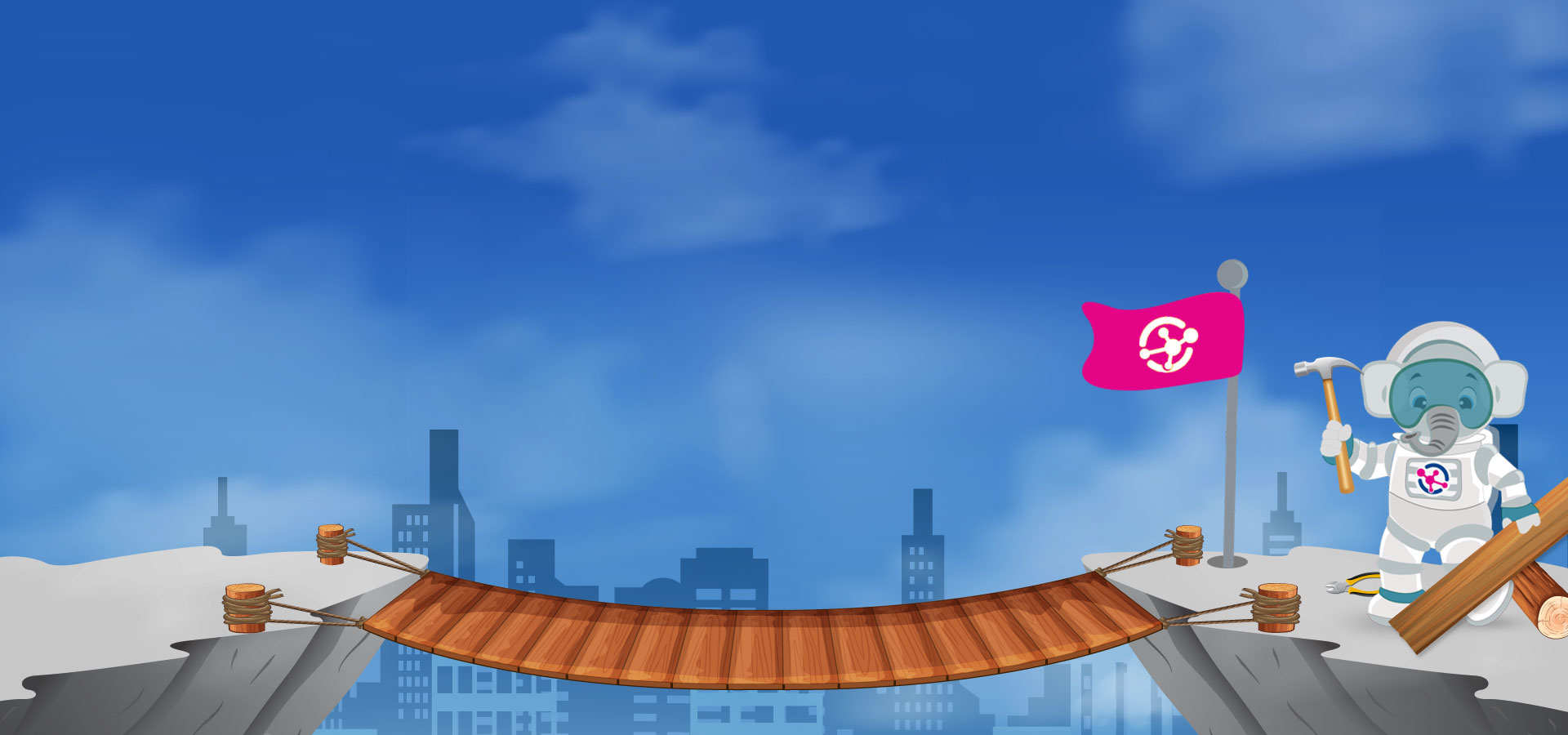Understanding and Addressing the Digital Divide
Digital Divide refers to the disparities in finances, education, and social status faced by those without access and exposure to technology whether it be access to a computer, access to the internet, or exposure to all the job possibilities associated with software development.
Understanding the US Digital Divide - Is the Problem Real?
- Why is it that African Americans, about 13 percent of the U.S. population, made up no more than 1 percent of technical employees at Google, Facebook, and other prominent Silicon Valley companies? (Source: Bloomberg)
- Why is it that Hispanics, about 17.8 percent of the U.S. population, made up no more than 6.7 percent of computer programmers across the U.S.A? (Source: U.S. Census Bureau, Brookings)
- Why haven’t we successfully addressed the problem of unemployment among the post 9/11 veterans by helping them acquire skills required for in-demand technology vacancies when there are over 700,000 unfilled technology jobs in the US? (Source: CNBC)
- Why is it that the percentage of people with disabilities working in information technology is only 2.1% while the total US population of People with Disabilities is 19%? (Source: U.S. Census Bureau, Disabled-world, BLS)
- Did you know that low technology literacy—including lack of familiarity with tech terminology and physical challenges were determined as the biggest barriers to the seniors’ adoption of new technology? (Source: Pew Research)
- Isn't it an irony that minority-owned startups account for only 27.4 percent of all startup businesses in the US when minorities make up almost 40 percent of the US population? (Source: Volusion)
- Isn't it odd that less than 10% of all minority-owned businesses are engaged in the tech industry despite the fact that STEM industries are growing more than any other in America? (Source: PRNewswire)
- Why are only 5 percent of leadership positions in the tech sector held by women? (Source: BusinessInsider)

Is There a Feasible Solution to Bridge the Divide?
Yes, we can teach people disenfranchised from technology with the "How To" skills such as programming, Quality Assurance, Project Management, Designing, basic computer operations, and more. We are planning to offer a program called "Skills to Pay Bills" at Technology Learning Centers (TLC) with an aim to close the gap before further advancements in technology widen it further.

Do You Still Think We Can Ignore the Unfortunate in Our Zest to Move Ahead? Think Again!
The Digital Divide affects U.S. domestic unemployment through technology skills gaps that hurt U.S. global competitiveness, and there’s no way we can turn a blind eye to it if we truly believe in a strongly connected nation.
The obstacle is by no means insuperable when fragmented into specific tasks that must be accomplished. So let’s help spread the benefits of technological change throughout the country!
The Agnos Mantra: Making a Buck While Making a Difference
Our people are bound by a civic obligation not to turn a blind eye to the societal challenges we all currently face. We share a set of values that emphasize laser focus on maintaining a culture of support and caring for fellow employees but also to extend that care beyond our place of work to our local communities.
Skills to Pay Bills
We are fully committed to the cause of bridging the digital divide. In our program, Skills to Pay Bills, we aim to teach "how-to" skills to people without exposure to technology to help them learn, earn, and grow. The program has a clear focus on teaching an array of skills from basic computer operations to surfing the internet, paying bills online to more advanced skills such as programming, Quality Assurance, Project Management, Design, etc. We want to make the disenfranchised tech-savvy and confident.
Let's dive deep into what Agnos is doing for different sections of society.
What is Agnos doing about it?
With an ingrained social entrepreneurial mindset and a strong belief in ‘Capitalism with a conscience’ philosophy, we aim to become a Certified B Corporation soon. As a company, we are conscious of the decisions we make and their impact on society. We sincerely believe that creating a real social impact is our collective responsibility, and extends beyond working with the public sector or merely having a corporate responsibility practice.
Bridging the Digital Divide- The Agnos Way!
The Ethnic Divide
We understand that access to digital technology is important; however, offering the right kind of training to use this technology to bring people to the mainstream is equally significant. Why do only 1% of technical employees in the United States belong to the African American community, when African Americans make up 13.4% of the population of the United States? Why are only 6.7% of computer programmers in the United States of Hispanic ethnicity, when Hispanics make up 18.5% of the United States population?
Some 46% of blacks and 48% of Hispanics say training to help them become more confident in using computers; smartphones and the internet will help them immensely in making important decisions. So, how do we at Agnos contribute to filling in the gaps?
We will leverage technology to build a bridge across the Digital Divide through access Technology Learning Centers (TLC), education, and training. We plan to deploy intern resources from different ethnicities and backgrounds on the technology projects so they can obtain “in the trenches” skills to pay their bills while being surrounded by Top Gun technologists who can mentor them in their professional development.

Wounded Warriors Initiative
Why are only 2.1% of people with disabilities working in information technology, when people with disabilities make up 19% of the United States population? Being a technology company, Agnos also believes in expanding IT skills training to enhance opportunities for injured veterans returning home. We hope and plan to get into a partnership with the Wounded Warriors Project to help American military veterans gain digital skills required for in-demand technology industry careers. We want to offer them the right training, career counseling, and information about the opportunities in the technology field.

Bridging the Digital Divide among Elderly
Computer use among senior citizens is rising every day. At times they are forced to have the know-how on computers to do their banking operations or to connect with the younger members of the family. Libraries, where the elderly frequent to acquaint themselves with fellow members, play a key role in bridging the gap between the tech fluent veterans and those deprived. Here the interested senior citizens are introduced to the digital world. Adults learn the basics such as usage of desktop/laptop/smartphone, internet, communication tools such as emails/social media. How does Agnos plan to help the digitally deprived?
We plan to develop a partnership with the American Association of Retired Persons (AARP). We are fully committed to the cause of bridging the digital divide. In our program, Skills to Pay Bills, We hope and plan to teach "how-to" skills to people without exposure to technology to help them learn, earn, and grow. The program has a clear focus on teaching an array of skills from basic computer operations to surfing the internet, paying bills online to more advanced skills such as programming, Quality Assurance, Project Management, Design, etc.
Startup Initiatives for Low-income and Minorities
Although the share of new entrepreneurs who are from minority groups is now 45%, a considerable increase since 2007 when 33.6 % of new businesses were started by non-whites according to the 2017 National Report on Early Stage Entrepreneurship; the low-income and minority groups are still less likely to take those kinds of risks, as they lack a safety net. The entire start-up world is low on diversity when we consider the factors like — who can get the finances, who can raise the money, and who will pay if the start-up fails? These factors build on each other and hamper start-up initiatives.
At Agnos, we can help minorities and low-income groups with strategic advice, digital training, and access to networks. We are also hoping and planning to get into a partnership with the Boys and Girls Club of America (BGCA) and have top gun resources with extensive experience and lessons learned in nurturing a start-up firm from thought to going public.




